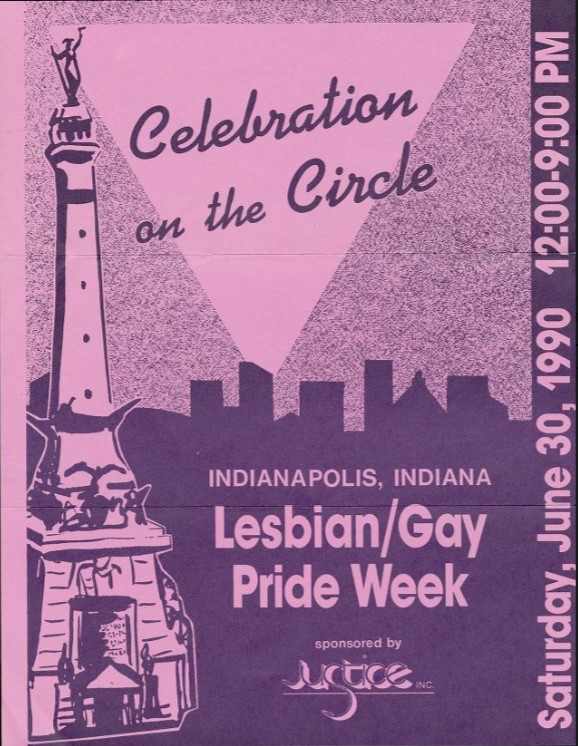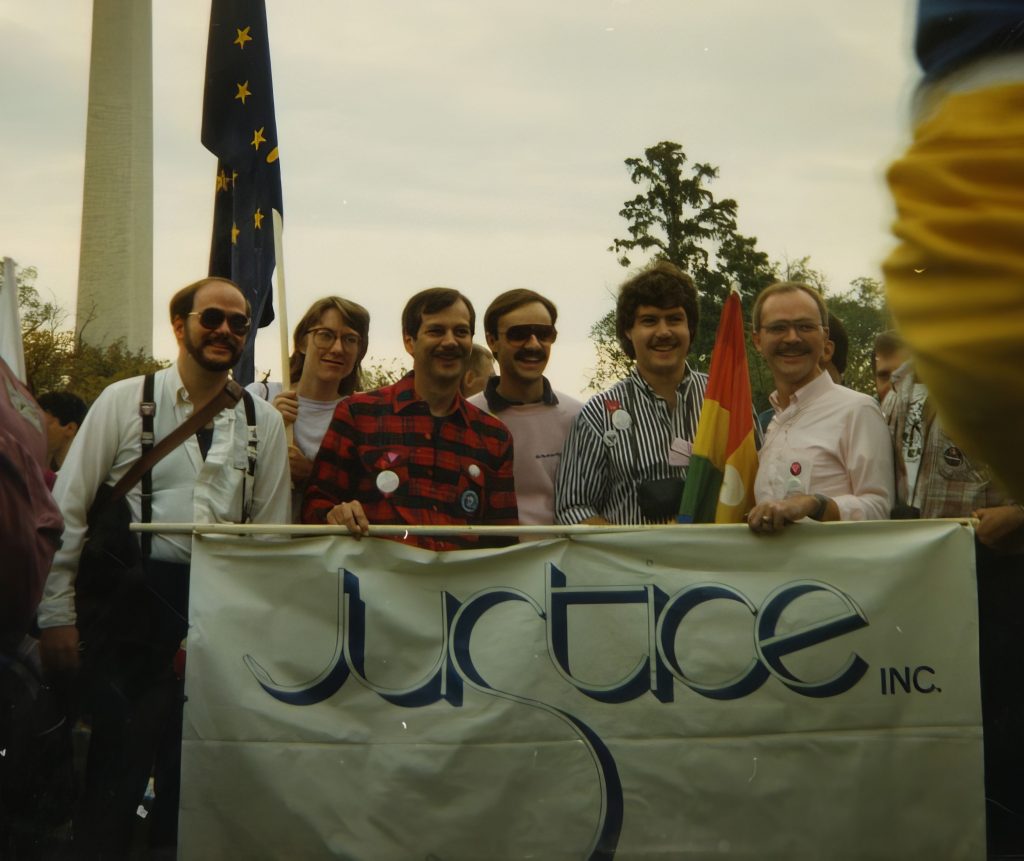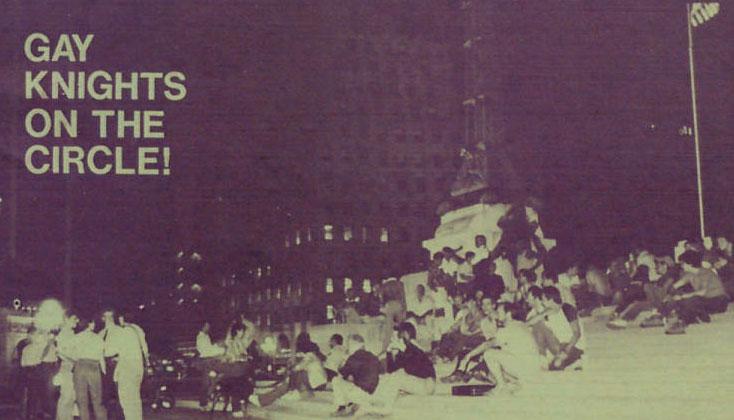Justice Inc. traces its beginnings to Indianapolis’ failure to celebrate Gay Pride Week in 1980. Many cities have celebrated Gay Pride Week the last week of June since 1969 in commemoration of the Stonewall Riots which took place at New York City’s Stonewall Inn on June 28, 1969. A militant demonstration followed the police harassment of the patrons at the gay bar leading to the birth of the gay liberation movement. To address Indianapolis’ nonobservance of the event, local gay and lesbian rights activist Kathi Sarris met with several gay and lesbian organizations in Indiana to establish a Pride Week Committee, which then organized and sponsored a Pride Week Brunch at the Essex House Hotel in June 1981.

Later, in November 1981, the group of state-wide activists met in Indianapolis where they formally organized Justice Inc. as the umbrella organization of Hoosier gay and lesbian groups and installed Kathi Sarris as its president. The organization focused on improving the political and social rights of gay and lesbian people across Indiana by addressing public attitudes towards gay and lesbian communities and advocating for anti-discrimination legislation.
Justice Inc. used the media and publicity of the gay community as a way to change public attitudes toward gays and lesbians. In August 1982, the non-profit met with the publisher to bring attention to the murders of over a dozen young gay men. Later, forming the Gay Murders Task Force, Justice Inc. sought to publicize the cases of the victims of the later-nicknamed “I-70 Strangler” (see ). The media had initially ignored these murders due to the men’s sexual orientation, but the cases garnered public attention due to the efforts of those in the local gay community, such as Justice Inc. and . In addition to increased coverage of these murders, the Indianapolis Star also started publishing comprehensive articles on gays and lesbians in 1983 such as one about Keith Allen Beaven, the openly gay Republican candidate for City-County Council in District 22, and one about AIDS research.

To tackle discrimination against members of the gay and lesbian community, Justice Inc. launched a Policy Advisory Council. Members of the council worked with Indiana state Senator Louis Mahern who introduced a Civil Rights Act Amendment that would have guaranteed civil rights for gays and lesbians and made discrimination based on sexual orientation illegal in April 1983. Though passage of the bill failed, Mahern reintroduced the bill for several years until giving up in 1985. Still, the work Justice Inc.’s Policy Advisory Council engaged in with Mahern revealed the possibility of what protection from discrimination against the gay and lesbian community in Indiana could look like.
In addition to working with Senator Mahern and lobbying for equal rights and hate crime protections, in 1984 Justice Inc. joined a group of activists in their drive to raise funds, educate on HIV prevention and safe sex methods, and work alongside local religious organizations to provide support for the gay and lesbian communities. In March 1987, Justice Inc. organized a state-wide annual conference focused on HIV education in the gay and lesbian communities. Moving forward, the group met with members of Indiana Governor Bayh’s administration in April 1989 to discuss the discriminatory violence that gays and lesbians faced and the HIV epidemic.
Notably, in August 1984 Justice Inc. helped sponsor the series of civil rights protests known as the . Justice, Inc. President Kathy Sarris spoke at the event and brought other speakers such as Bruce Voeller, founder of the National LGBTQ Task Force. The first public protest of its kind, the Gay Knights on the Circle protests brought together the largest group of LGBTQ+ individuals in Indiana to publicly protest police harassment of their community members.

On June 26, 1988, Justice Inc. gave the gay and lesbian community another opportunity to occupy a public space when it expanded and hosted the annual Pride celebration at the Indianapolis Sports Center at . This became the first time the event took place outdoors rather than inside a restaurant, hotel, or bar. One hundred seventy-five people attended the event which included a yard sale, church services, and a roller-skating party. In 1989, the event took place at Westlake Park where attendance swelled to 1,000 people.
Ruth Peters, then-Chair of Justice Inc.’s Pride Week Committee who later cofounded the , and Eric Evans co-organized the June 30, 1990 Pride event at . The gathering is recognized as the largest outdoor public pride event in the state up to that point.
By the mid-1990s other organizations emerged in Indianapolis to support gay and lesbian activities. In 1995 Indy Pride Inc. took over organizing the annual Celebration on Monument Circle. The celebration moved from the Circle to the and from the summer to the fall. A major change from a free outdoor event to one with an admission fee resulted in major debt and an unpromising future for Indy Pride Inc.
In 1999, Justice Inc. began conversations with Indy Pride Inc. to combine the numerous Pride events the two organizations hosted in Indianapolis. Justice Inc. continued providing workshops, lobbying efforts, and outreach to the gay and lesbian communities in Indiana into the 2000s. However, by the mid-2000s, Justice Inc. merged with Indy Pride.
Justice Inc.’s legacy lies in the development of a successful Gay Pride Week, the foundation for much of the political gay rights movement in Indiana, and its voter registration drives that resulted in over 5,000 registrations in a two-year timeframe.

Help improve this entry
Contribute information, offer corrections, suggest images.
You can also recommend new entries related to this topic.
